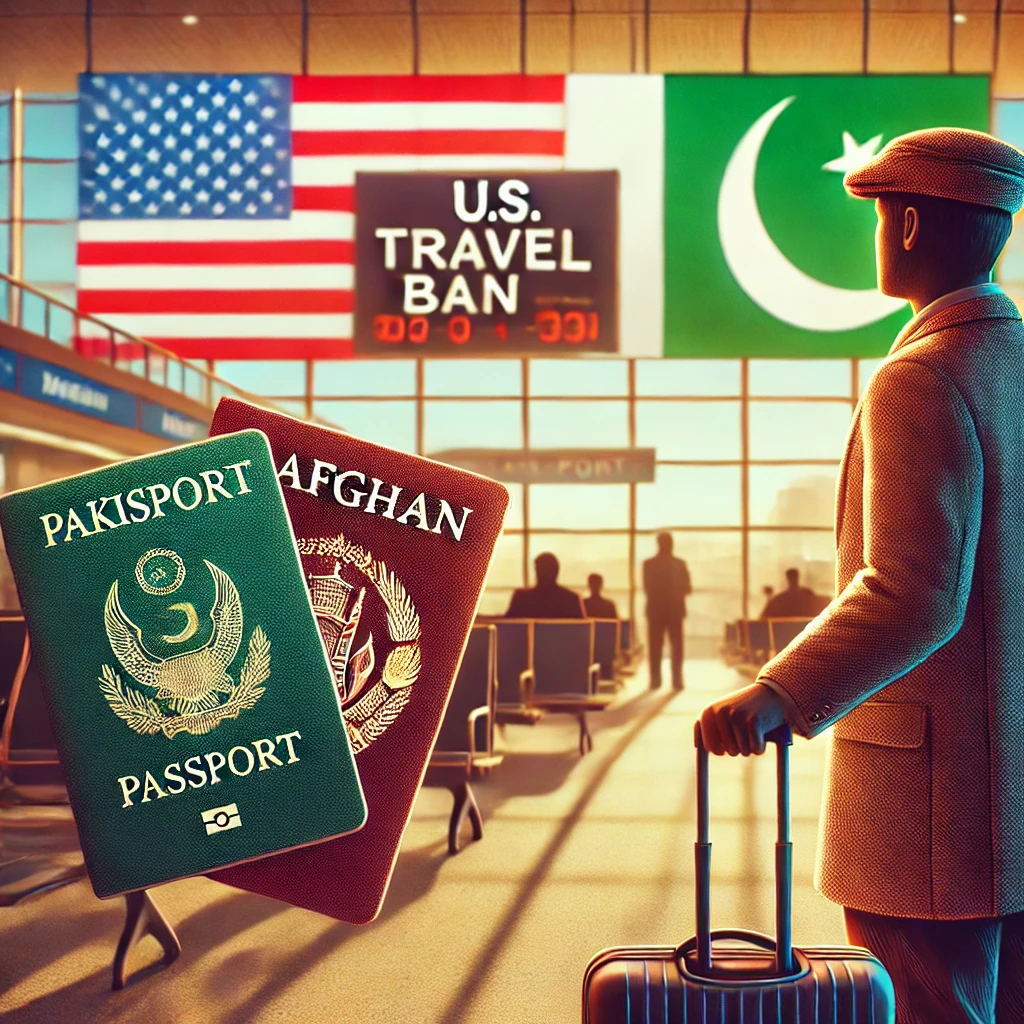The United States has long been a destination for individuals seeking better opportunities, education, and refuge. However, in recent years, travel restrictions and bans have significantly impacted certain countries, including the USA Travel Ban on Pakistan and Afghanistan. The US travel ban on these nations has sparked debates, raised concerns, and left many wondering about its implications for individuals, families, and diplomatic relations. In this blog, we’ll delve into the history, reasons, and consequences of the travel ban, as well as its potential future.
A Brief History of the USA Travel Ban
The US travel ban, often referred to as the “Muslim ban,” was first introduced in 2017 under the Trump administration. Initially, it targeted seven Muslim-majority countries, including Iran, Libya, Somalia, Syria, Yemen, Iraq, and Sudan. Over time, the list evolved, and US Travel Ban on Pakistan and Afghanistan was indirectly affected due to heightened scrutiny and visa restrictions.
While Pakistan and Afghanistan were not explicitly named in the original ban, the stringent visa policies and security measures imposed on their citizens created a de facto travel ban. The Biden administration has since revised the policy, but challenges remain for travelers from these nations.
Why Pakistan and Afghanistan?
The inclusion of Pakistan and Afghanistan in the broader travel restrictions stems from several factors:
- Security Concerns:
Both countries have faced ongoing security challenges, including terrorism and political instability. The US government has cited these concerns as a primary reason for imposing stricter visa policies. - Immigration Overstays:
Data from the Department of Homeland Security (DHS) revealed that a significant number of individuals from Pakistan and Afghanistan overstayed their visas, leading to increased scrutiny. - Diplomatic Tensions:
The US has had a complex relationship with both nations, particularly Afghanistan, due to the prolonged military presence and the Taliban’s resurgence. Pakistan, on the other hand, has been criticized for its alleged support of militant groups.
Impact on Individuals and Families
The travel ban has had far-reaching consequences for individuals and families from Pakistan and Afghanistan:
- Separated Families:
Many families have been torn apart, with members unable to reunite due to visa denials or delays. This has caused emotional distress and financial strain. - Educational Barriers:
Students from these countries face significant hurdles in obtaining visas to study in the US, limiting their access to world-class education and opportunities. - Economic Consequences:
The ban has discouraged tourism, business travel, and investment, affecting the economies of both Pakistan and Afghanistan. - Refugee Crisis:
Afghanistan, in particular, has seen a surge in refugees following the Taliban takeover in 2021. The travel ban has made it even more difficult for vulnerable individuals to seek asylum in the US.
Diplomatic and Geopolitical Implications
The travel ban has also strained diplomatic relations between the US, Pakistan, and Afghanistan:
- Erosion of Trust:
The ban has been perceived as discriminatory, leading to a loss of trust and goodwill between the nations. - Impact on Collaboration:
Restrictions on travel have hindered collaboration in areas such as counterterrorism, trade, and cultural exchange. - Global Perception:
The ban has drawn criticism from human rights organizations and the international community, tarnishing the US’s image as a land of opportunity and refuge.
The Way Forward
While the Biden administration has taken steps to revise the travel ban, more needs to be done to address its unintended consequences:
- Streamlined Visa Processes:
Implementing fair and efficient visa procedures can help reduce delays and ensure that deserving individuals are not unfairly targeted. - Humanitarian Considerations:
Special provisions should be made for refugees, asylum seekers, and families seeking reunification. - Diplomatic Engagement:
Strengthening diplomatic ties and addressing underlying security concerns through dialogue can help rebuild trust and cooperation. - Public Awareness:
Educating the public about the reasons behind the ban and its impact can foster greater understanding and empathy.
Conclusion About USA Travel Ban on Pakistan and Afghanistan
The US travel ban on Pakistan and Afghanistan is a complex issue with far-reaching implications. While security concerns are valid, it is essential to strike a balance that upholds national security without compromising humanitarian values and diplomatic relations. By adopting a more nuanced and inclusive approach, the US can continue to be a beacon of hope and opportunity for individuals worldwide.
What are your thoughts on the travel ban? Share your opinions in the comments below or explore more articles on our blog to stay informed about global issues.
Important URLs:
A Request:
If you found this article insightful, don’t forget to share it with your network. Subscribe to our newsletter for the latest updates on immigration policies, travel bans, and global affairs.
Read Our Latest Blogs About: USA Travel Ban Policy 2025: Country Categories, Lists



